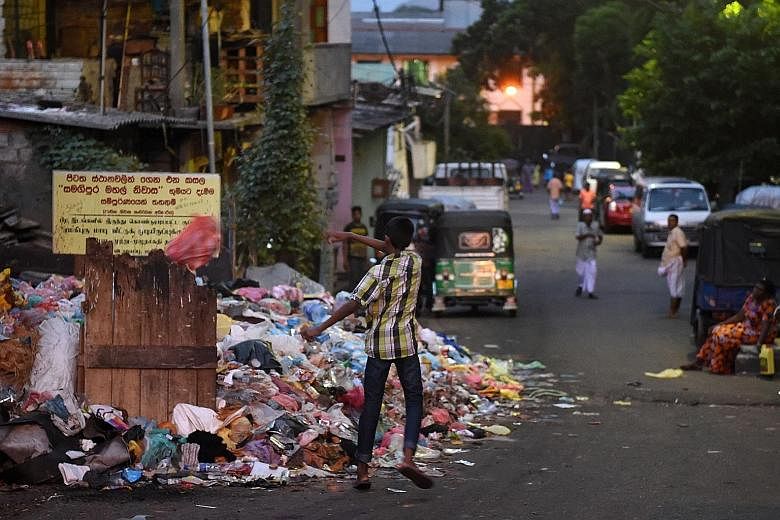COLOMBO • Sri Lanka deployed hundreds of soldiers to destroy mosquito-breeding grounds as the country battles the spread of the deadly dengue fever that has killed a record 215 people this year, officials said yesterday.
Humid monsoon weather, stagnant water from recent flooding and mounting piles of rotting garbage accumulating in the capital have combined to create abundant areas for mosquitoes to multiply.
This has caused the number of cases of dengue, a tropical disease that is spread by mosquitoes, to surge to over 71,000 people in the first six months of this year, a record figure that far surpasses last year's total of 55,000.
Troops, backed by police and health officials, have launched an intensive campaign to identify dengue hot spots to be sprayed with insecticides, the military said in a statement.
"Twenty-five teams will separately move into the worst-affected areas in and around Colombo and search for mosquito-breeding spots and other vulnerable areas," the statement said.
The scale of the spread of the disease has been unprecedented and caught the Sri Lankan authorities off guard. Health Ministry officials said the 215 deaths in the first six months of this year compared with 78 reported during the whole of last year.
News site The Daily Mirror reported a severe shortage of hospital beds in Colombo as a result of the dengue epidemic, with patients lying on any available space in corridors; be it on mats on the floor, on benches or on foldable beds.
-
215
Number of deaths in Sri Lanka in the first six months of this year due to dengue fever.
71k
Number of people infected by dengue in the same period.
The authorities have blamed a garbage disposal crisis in Colombo for the spread of dengue.
The country's main rubbish tip collapsed in April, crushing dozens of homes and killing 32 people.
With nowhere to take the rubbish, municipal collection has drastically slowed and has led to huge piles on the streets, which the authorities say help mosquito-breeding.
Stagnant water left behind after last month's flooding was also seen as contributing to the spread of dengue.
Last week, Sri Lanka's Tourism Minister John Amaratunga assured reporters that the dengue outbreak had no adverse impact on tourist arrivals to the island. Mr Amaratunga said tourist arrivals had fallen last month due to devastating floods and a cyclone, which hit the country in late May, followed by the threat of a dengue epidemic. However, he said things were now returning to normal in the disaster-affected areas, and the government was confident that arrivals would pick up this tourist season.
Tourist arrivals hit a record high of two million last year and are expected to reach 2.5 million this year.
AGENCE FRANCE-PRESSE, XINHUA

